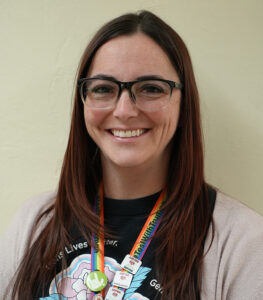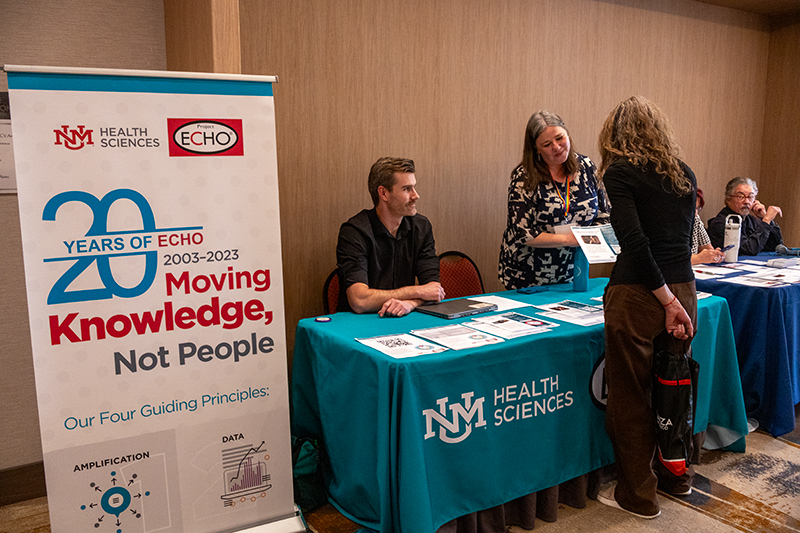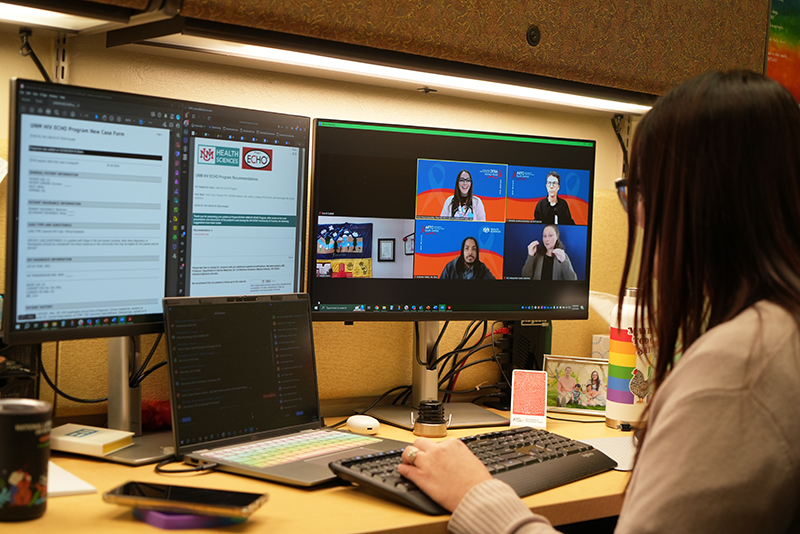Across Arkansas, Louisiana, New Mexico, Oklahoma and Texas, providers are on the front lines of the HIV epidemic. Through the South Central AIDS Education and Training Center, health care teams are improving HIV care by receiving high-quality training from expert clinicians.
The need for accessible, up-to-date HIV education is urgent. Health care teams in rural areas juggle overwhelming caseloads with evolving standards of HIV prevention and treatment – often with limited training, scarce referral options, and persistent barriers to care.
Meeting Providers Where They Are
“Time is one of the biggest barriers providers face,” says Dr. Jorge Mera, clinical director for SCAETC and director of infectious diseases for Cherokee Nation Health Services. “HIV care wasn’t always prioritized during medical training, and today’s systems make it hard to learn and implement new practices. The ECHO Model meets providers where they are, providing support, structure and a sense of community.”

Dr. Jorge Mera, director of the SCAETC program at Project ECHO, shares insights on advancing HIV care and training during a conference. Photo Credit: Project ECHO, 2016
Saving the expenses and time that in-person trainings require, Project ECHO uses a virtual, case-based learning model. From primary care doctors to case managers, providers can earn continuing education credits, consult on cases, and build expertise without leaving their communities.
“We’re streamlining the latest HIV prevention and treatment guidelines and putting them into providers’ hands quickly,” Dr. Mera explains. “That allows more time to focus on patient care, especially in underserved areas.”
Peer Support

Carly Floyd supports provider engagement and training for the SCAETC program at Project ECHO, helping expand access to HIV care. Photo Credit: Project ECHO, 2024
Carly Floyd, a clinical pharmacist and clinical director for the SCAETC local partner site at The University of New Mexico, also sees ECHO’s power to change the learning dynamic.
“Clinicians can listen, learn and present complex cases in real-time,” she says. “ECHO breaks down the hierarchy. We can ask questions and grow together as a community. That creates a peer-to-peer learning environment that’s accessible and impactful.”
Dr. Mera recalls a powerful example: “During an [ECHO session] with the Cherokee Nation in Oklahoma, one provider presented a case needing a FibroScan. Another provider offered access to their clinic’s machine, solving what would have otherwise been a huge barrier. That’s the magic of ECHO: real-time solutions, shared resources and collaboration across systems.”
Community-Driven, Culturally Competent Care
Providers are now better equipped to deliver HIV prevention strategies, initiate early treatment and manage complex patient needs. In some settings, clinics have begun integrating HIV screening and prevention into routine care, reflecting growing awareness and systemic improvements that can ultimately save lives.
Dr. Patricia Canessa, a public health consultant and Project ECHO participant, highlighted another essential aspect of the program.
“ECHO recognizes that delivering effective HIV care isn’t just about medication,” says Dr. Canessa. “It’s about understanding identities, histories and communities. ECHO creates a blended audience where patients and providers learn from each other.”
Clinicians discuss stigma, non-medical barriers to care, and the challenges faced by people disproportionately affected by HIV, including LGBTQ+ and rural communities. “ECHO supports culturally competent interventions that are grounded in the connection between risk factors, prevention awareness and self-care practices, ensuring care is relevant and respectful of diverse lived experiences,” Dr. Canessa adds.
Fostering Regional Leadership and Public Health Impact
One of the most significant impacts of ECHO is the sustained support it creates across the HIV workforce. “Because of ECHO, we’re not just training providers, we’re giving them a team,” says Dr. Mera. “We’re building relationships and removing isolation, especially in the South, where the HIV epidemic intersects with other systemic health disparities.”

Project ECHO team members connect with attendees at the 2025 AETC Conference in Albuquerque, sharing resources and building partnerships to strengthen HIV care. Photo Credit: Project ECHO, 2025
Learn more about how SCAETC and Project ECHO are transforming HIV care and working to end the HIV epidemic.
*Thanks to the generous funding by the federal Ryan White HIV/AIDS program, supporting the South Central AIDS Education and Training Center at The University of New Mexico Health Sciences Center.
Story Excerpt: Quote from Dr. Jorge Mera, director of the South Central AIDS Education and Training Center
Featured Image: Carly Floyd leads a live SCAETC ECHO session, connecting with peers to strengthen HIV care and support for patients across the Southern Central region. Photo Credit: Project ECHO, 2024


